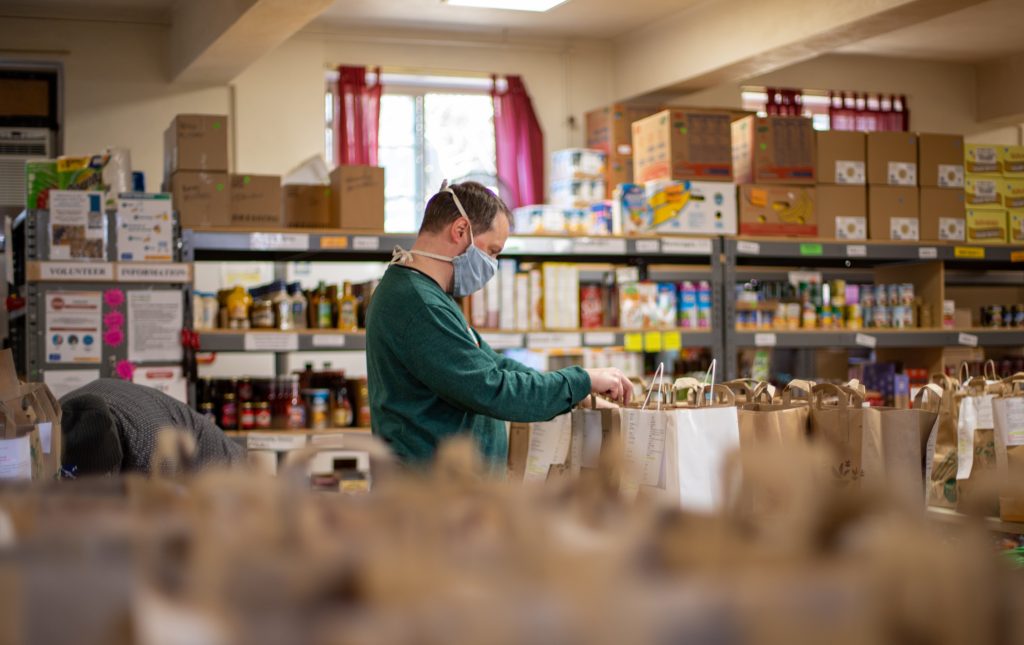
Written by Wayne Murray, Founder at Humanity Squared.
I write this as I see smug Tory MP’s proudly taking photo opportunities at food banks.
I write this as my son’s best mate casually said he only has a roast dinner once a month because his family can’t afford to have the oven on for that long anymore.
I write this as the elderly woman over the road cracked her hip in a fall and had to wait 7 hours for an ambulance.
The world is changing, and it ain’t all good.
Life is tough at the moment, and it’s getting tougher for many. I set up my own business against the backdrop of COVID. In fact, weirdly it was fuelled by COVID. As charities really started to think about doing things differently, rather than just talking about it. The world is changing.
I work with a deliberately broad range of charities. I have a 3-tiered pricing structure. The work that I do for large charities enables me to discount my rates for medium-sized charities. This in turn enables me to work with grassroots, community charities for free. It’s with the grassroots stuff that I see the future of our sector.
Driven by need. Powered by lived experience.
I’ve worked in the sector for 22 years, but the free work I’m doing now enables me to work with charities I’d just never been able to work with historically. A father and son running a food bank out of their shed. A gambling charity run by three people in recovery. Two women who distribute free sanitary products in their local community. All acutely driven by need, powered by lived experience and rooted in community.
All charities were small once.
It’s with the grassroots that I see the future of our sector.
All charities were small once. Set up by good humans and driven by immediate need. To fix something. To solve problems. The larger they grow, the further away from that need they get.
Many brilliant large organisations do what they can to reconnect and do it well, but there’s a natural tide that will try to push you in a different direction, away from the front line of delivery. Away from lived experience.
All charities were small once. Set up by good humans and driven by immediate need.
Why do you think so many organisations at the moment are trying to work out what their vision is? Because they’ve drifted.
Hierarchies can get in the way. They don’t often work.
I often talk about hierarchies within charity. How they don’t really work. How they get in the way. How more horizontal ways of working are more effective.
The same goes for the hierarchy of the sector and where power sits. Big charities at the top, smaller charities at the bottom. The big charities rarely talk to the small ones, and no matter how loud the smaller charities shout, the large ones don’t really hear, or notice them.
Knowledge should bubble up.
Let’s build capacity and power from the bottom up because it’s not trickling down.
I also often talk about how knowledge and innovation bubbles up through organisations. How it isn’t the role of leaders to have all the answers, but to create a culture where those bubbles can grow, and to use their power to do something with them.
This should be the same for the broader sector too. Small charities are on the front line. It’s where all the knowledge is, all the innovation and all the fresh thinking. But this isn’t bubbling up through the sector.
Even more worryingly, knowledge from the large charities isn’t trickling down to the small ones either. There’s a huge disconnect. The big charities have funding, infrastructure and power, but the small charities have the knowledge, lived experience and relevance.
If you have power, you need to give it away.
That’s why it’s important that all organisations, agencies, consultants and individuals with power,
know what they need to do with it. You need to give it away.
The big charities have funding, infrastructure and power, but the small charities have the knowledge, lived experience and relevance.
Use your knowledge, your time and your passion to help smaller charities. Let’s build capacity and power from the bottom up because it’s not trickling down. And it’s not working.
Let’s be less focused on building bigger brands, growth for growth’s sake and status, and think of what our key role is in driving actual societal change.
Then let’s do it together. And it all starts with small charities. Learn from them. Support them. Centre them.






